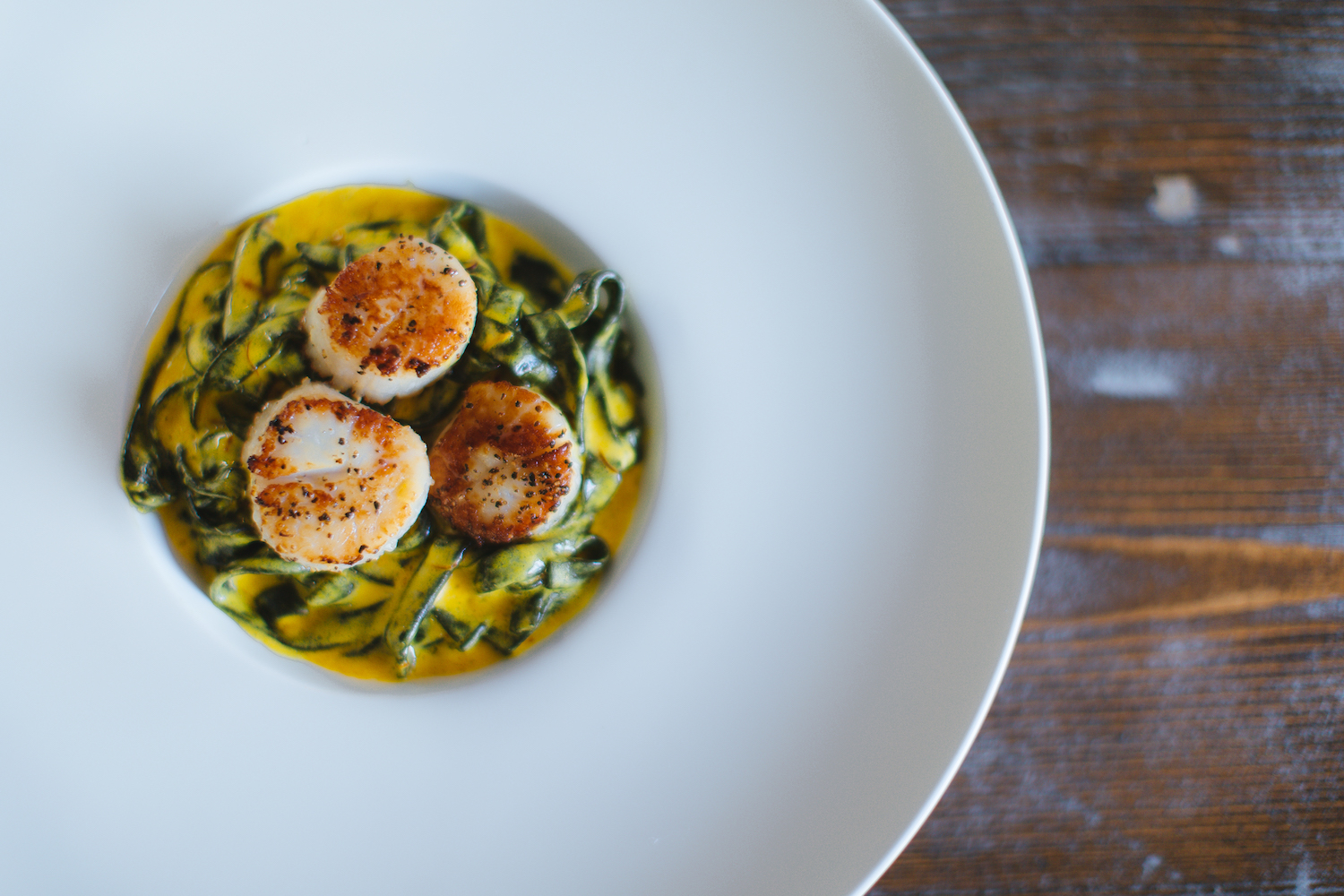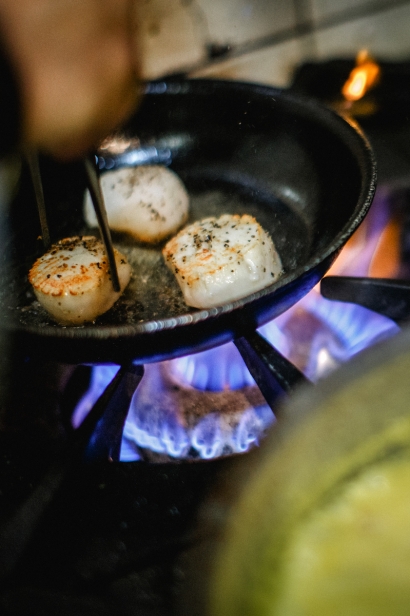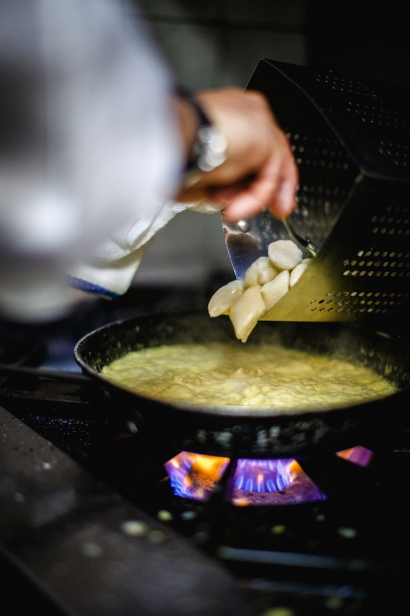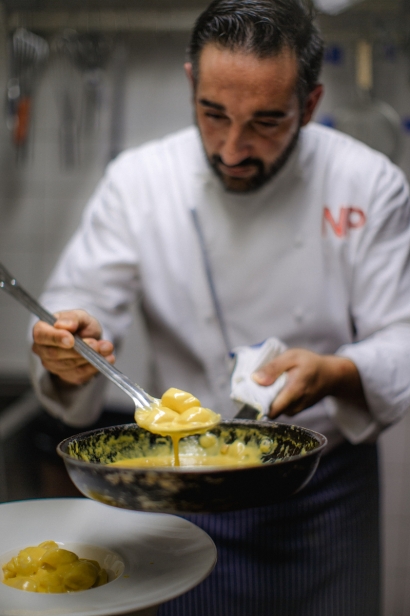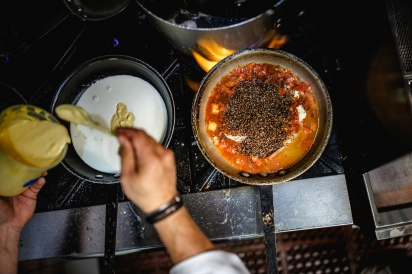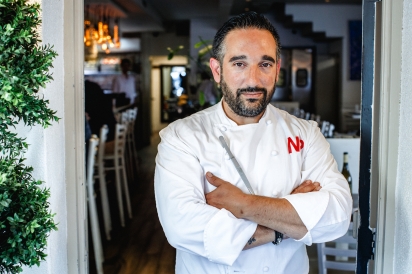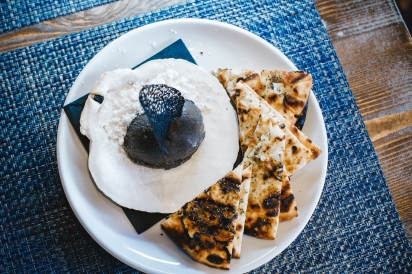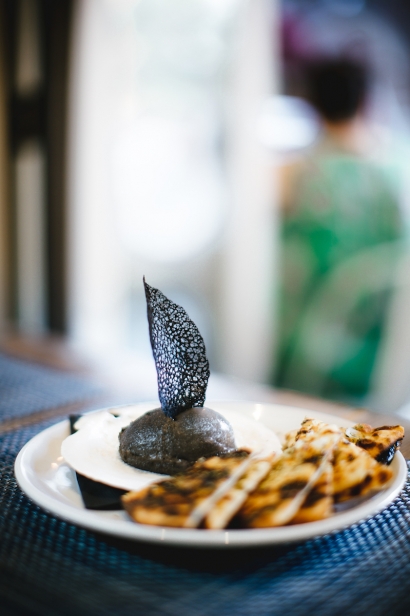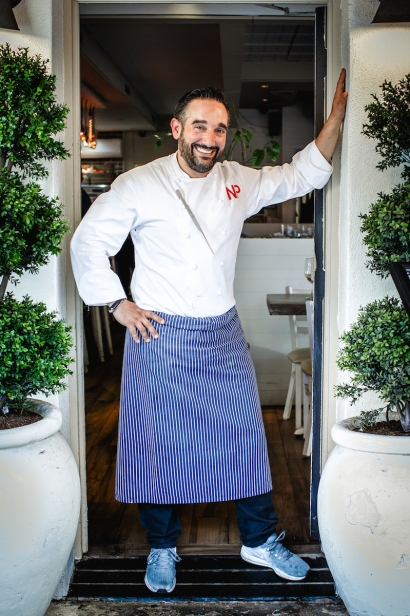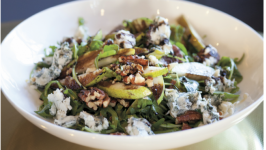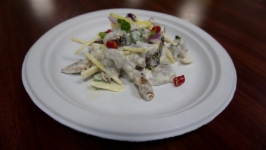Akrotiri
When it comes to TV cooking competitions, it can often seem like the price of admission is ego rather than talent. Chefs compete to take up the most space on screen, not to create the most delicious dish. Yet a few weeks ago, on the TV show “Chopped,” a humble, quiet chef won over the judges with his graciousness as well as his elegant, creative takes on Greek cuisine.
His name was Nicholas Poulmentis, and you can find him at Astoria’s recently opened Akrotiri, fulfilling his dream to take Greek food beyond the familiar.
“Whichever restaurant I worked in, they didn’t want to give a new note to the food, a twist, new ingredients,” he explained on a phone call between a visit to the barbershop and the start of Friday’s dinner rush. “I wanted to show people that Greek cuisine is so much more than that.”
Born in the United States to Greek parents, Poulmentis left with them at only 1 year old, for the island of Kythira. Decades later, faced with the fallout from Greece’s financial crisis, he used his American passport to follow in his parents’ footsteps once again. Returning to New York, he found that the cooking tenets he’d grown up with on his Greek island—keep it simple, use the best ingredients—were now being championed by chefs here too.
The restaurant’s namesake, Akrotiri, was a thriving ancient metropolis swallowed by a volcanic eruption in the 17th century BC—a Greek version of Pompeii now in its sixth decade of excavation on the modern-day island of Santorini. A recent visit to Akrotiri felt like a similar kind of culinary unearthing, peeling back layers of interpretation to ask: What does this food mean to Greeks in Greece? To those in Astoria? To the chef himself?
A dish of fresh, rich pink chunks of raw tuna slicked with oil and dusted with sesame seeds seemed designed to please poke-loving hipsters who may have chosen Astoria over a pricier Brooklyn neighborhood. Htenia—indulgent skeins of squid ink pasta swathed in saffron sauce and topped with perfectly grilled scallops—was a showstopper as served, yet somehow tasted like comfort food. Taramas Lava me Trufa—a scoop of herring egg paste anointed with black truffle, ice-cream-like, darker than chocolate mousse—was unrecognizable from the typical tarama, with its bland pink color and mild flavor.
Arguably even more daring, however, is the decision to include and champion Greek, organic and natural wines, and treat them with as much respect as their French or Italian counterparts, introducing them to an audience who may only be familiar with the astringent taste of retsina. Here Poulmentis credits his sommelier, Aris Soultanos, who tends to an ever-growing list of reds, whites, rosés and orange wines, including one dating back to ancient Greece, believed to have been lost until its seeds were rediscovered on a vineyard and replanted.
At Akrotiri, Poulmentis appears to be doing the same: unearthing seeds that lay dormant for centuries, then transforming them into something delicious, entirely original and worth a special trip to Astoria.
Chopped
Nicholas Poulmentis | @chef_nicholas_poulmentis
Akrotiri | @akrotiri_seafood_taverna


